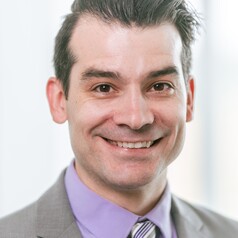
Mark M. Lambert
Assistant Professor of Behavioral Medicine, Medical Humanities, and Bioethics, Des Moines University
Dr. Lambert is Assistant Professor of Behavioral Medicine, Medical Humanities, and Bioethics at Des Moines University, where he teaches the medical ethics curriculum in the College of Osteopathic Medicine. He received his PhD from the University of Chicago Divinity School where he focused on religion and medicine. Dr. Lambert’s teaching and research has crossed the traditional boundaries of bioethics, indigenous studies, the history of medicine and religious studies. Focusing on leprosy (Hansen’s disease) and its modern history in the United States, especially Hawai’i, Dr. Lambert studies the impact of stigmatizing diseases—HIV/AIDS, mental illness and neglected tropical diseases—upon already marginalized communities. Having grown up in Kirksville, MO, Dr. Lambert is very familiar with osteopathic medicine and is also researching the historical development of osteopathy.
Less ![]()
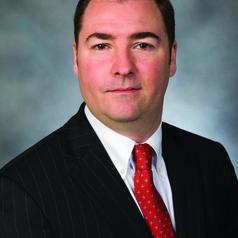
Mark P Jones
Joseph D. Jamail Chair in Latin American Studies & Baker Institute Political Science Fellow, Rice University
Mark P. Jones, Ph.D., is the fellow in political science at the James A. Baker III Institute for Public Policy, the Joseph D. Jamail Chair in Latin American Studies and a professor in the Department of Political Science at Rice University. Jones also leads the Baker Institute's Argentina Program and helps direct the Presidential Elections Program as well as serves as the faculty director of Rice’s Master of Global Affairs program.
Jones has received substantial financial support for his research, including grants from the United States National Science Foundation. His research has been published in journals such as the American Journal of Political Science and the Journal of Politics, as well as in edited volumes published by Cambridge University Press and Oxford University Press, among others. He is a frequent contributor to national and Texas media outlets, and his research on the Texas Legislature has been widely cited in the media as well as by numerous political campaigns.
Jones regularly advises U.S. government institutions on economic and political affairs in Argentina and has conducted research on public policy issues in Latin America and Texas for numerous international, national and local organizations. He is a frequent commentator in local, state, national and international media on government, politics and public policy. Jones received his doctorate from the University of Michigan and his bachelor’s degree from Tulane University.
Less ![]()
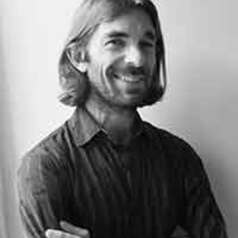
Mark P. Witton
Research Fellow in Palaeontology, University of Portsmouth
I'm a palaeontological author, artist and researcher based on the south coast of the UK and affiliated with the University of Portsmouth. I'm best known for my research on pterosaurs and, more recently, my contributions to palaeoart - the evidence-led restoration of extinct organisms in drawings, paintings, sculpture and film.
My background is based more in scientific research than writing and artistry. I obtained my PhD from the University of Portsmouth in 2008 after three years of studying pterosaurs, the flying reptiles contemporaneous with non-avian dinosaurs. I remain active in pterosaur research, but since completing my thesis I've found myself employed more as an artist and consultant on the life appearance of extinct animals than as a traditional academic. My career has thus shifted focus to reconstructing extinct animals, and I now spend more of my time considering the history, methods and technical details of this topic than flying reptiles. I've been lucky to impart some of this knowledge to major media clients, with my creature designs and input being used by the BBC, National Geographic, Royal Mail and the Royal Mint. Alongside my papers, books and book chapters on palaeoart, I also post regularly about palaeoart topics at my blog. My artwork has been displayed around the world in venues such as the Natural History Museum, American Museum of Natural History, Yale Peabody Museum and London's South Bank.
Less ![]()
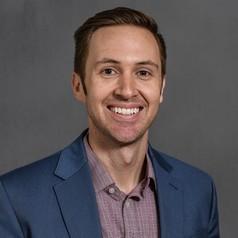
Mark R. Gleim
Associate Professor of Marketing, Auburn University
Mark R. Gleim is an Associate Professor of Marketing at Auburn University. He previously was an Associate Professor of Marketing in the College of Business and Innovation at the University of Toledo. Mark earned his doctorate from Florida State University.
His research interests include access-based consumption, services marketing, sustainability and marketing strategy. His research has appeared in the Journal of the Academy of Marketing Science, Journal of Retailing, Journal of Service Research, Journal of Business Research, Journal of Marketing Theory & Practice, Marketing Letters and Journal of Consumer Marketing, among other outlets.
Less ![]()
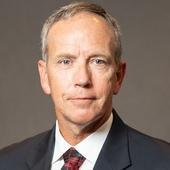
Mark S. Chandler
Professor of Practice and Director, Government Relations - Intelligence and Security Studies Department, Coastal Carolina University
Less ![]()
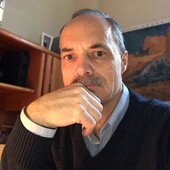
Mark V. Lomolino
Professor emeritus, State University of New York College of Environmental Science and Forestry
Less ![]()
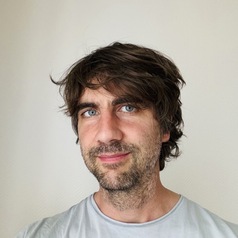
Markus Holdo
Associate senior lecturer, Lund University
I teach and do research on social movements and ideas about democracy. I’m currently examining practices of listening and care in contentious politics. I also do research on how corporate interest groups, involved in conservative and far-right politics, affect discourses on the environment and immigration.
Less ![]()
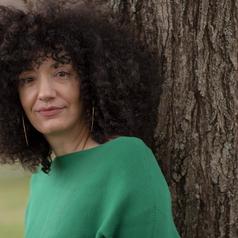
Marlee Bunch
Staff K-12 Initiatives, Office of the Chancellor, University of Illinois at Urbana-Champaign
My name is Dr. Marlee Bunch. I am an educator, author, researcher, and lifelong learner. My research examines the oral histories of Black female educators in Hattiesburg, Mississippi who taught between 1954-1971, and the implications that integration had on their lives and careers. I have two forthcoming publications on university presses celebrating the voices and histories of these women.
I received my doctoral degree from the University of Illinois in 2022 in Education/Policy/Organizational Leadership. Additionally, I have a Masters in Education (MEd), a Masters in Gifted Education (MS), a Bachelors in English, a certification in Diversity/Equity/Inclusion, and a certification in ESL (English as a Second Language).
I have been an educator for 17+ years, and am the founder of the Unlearning the Hush teaching framework. You can learn more about my work at https://www.unlearningthehush.com/
or https://www.drmarleebunch.com/
Less ![]()
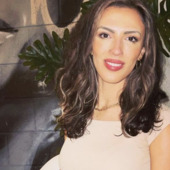
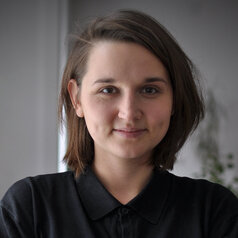
Marlene Radl
PhD candidate in the Department of Political Science, Universität Wien
Marlene Radl (MA, University of Vienna) is a PhD candidate in the Department of Political Science at the University of Vienna. She holds a MA in political science and a bachelor’s degree in developmental studies as well as in economics. Through the OeAD Marietta Blau Grant, she is currently completing a research stay at the Peace Institute in Ljubljana.
Less ![]()
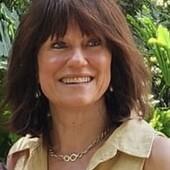
Marlese von Broembsen
Associate Professor (in Labour Law and Development), University of the Western Cape
Less ![]()
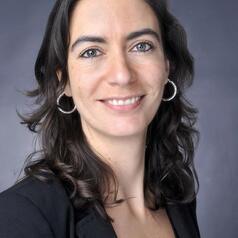
Marney Isaac
Professor, University of Toronto
Research Interests
Agroecology, agrobiodiversity, biogeochemical cycling, plant functional traits, agrarian networks, sustainable agriculture
Awards and Grants
Canada Research Chair in Agroecosystems and Development
Less ![]()
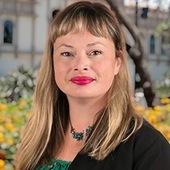
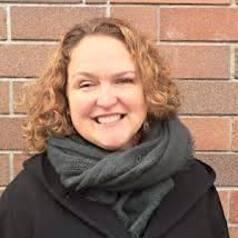
Marnie Badham
Associate Professor, School of Art, RMIT University
With a 25 year history of art and justice practice in both Canada and Australia, Marnie’s research sits at the intersection of socially-engaged art practice, participatory methodologies and the politics of cultural measurement Through aesthetic forms of encounter and exchange and a focus on relational ethics, Marnie’s practice brings together disparate groups of people (artists, communities, industry, local government) in dialogue to examine and affect local issues. Marnie is Associate Professor at the School of Art, RMIT University.
Less ![]()
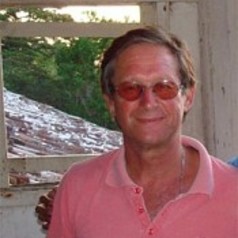
Marshall Eakin
Professor of History, Vanderbilt University
Marshall Eakin is a historian of Latin America specializing in the history of Brazil. Although his work spans all of Brazilian history, his major publications have concentrated on the processes of nationalism and nation-building, economic and business history, and industrialization—primarily in the twentieth century.
His first book, British Enterprise in Brazil: The St. John d’el Rey Mining Company and the Morro Velho Gold Mine, 1830-1960 (Duke, 1989), traces the history of the most successful foreign enterprise in 19th- and 20th-century Brazil. Tropical Capitalism: The Industrialization of Belo Horizonte, Brazil (Palgrave, 2001) examines the industrialization of the second-largest industrial center in Brazil.
Much of his work addresses audiences beyond the academy. This work includes Brazil: The Once and Future Country (St. Martin’s, 1997), a one-volume introduction to Brazil for beginners and two video courses with the Great Courses, The Conquest of the Americas and The Americas in a Revolutionary Era. His more recent book is The History of Latin America: Collision of Cultures (Palgrave Macmillan, 2007). Eakin’s latest book project is “Becoming Brazilians: Race and National Identity in Twentieth-Century Brazil” to be published by Cambridge University Press in 2017.
Less ![]()
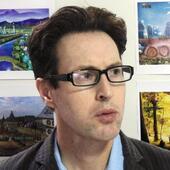
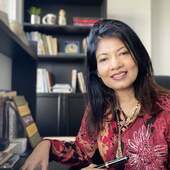
Marshia Akbar
Director of the BMO Newcomer Workforce Integration Lab and Research Lead on Labour Migration at the CERC Migration and Integration Program at TMU, Toronto Metropolitan University
Less ![]()
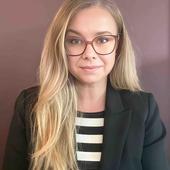
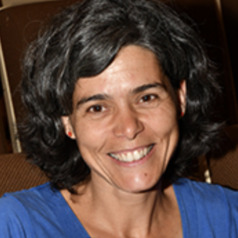
Marta Casla Soler
Profesora del dpto. Psicología Evolutiva y de la Educación. Facultad de Psicología, Universidad Autónoma de Madrid
Less ![]()
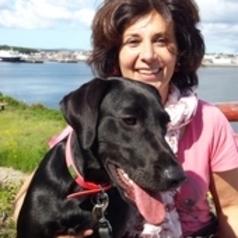
Marta Di Forti
Professor of Drugs, Genes and Psychosis, King's College London
I am Professor of Drugs, Genes and Psychosis and Senior MRC Clinician Research Fellow in the Department of Social Genetics and Developmental Psychiatry at the IoPPN, KCL and an Honorary Consultant Adult Psychiatry. I also work as a Consultant Psychiatrist at EI Lambeth Community team, and I lead the only Cannabis Clinic for PsychosisIn 2012,South London and Maudsley NHS and foundation Trust . In 2012, I obtained my PhD on the topic of gene x cannabis use interaction influencing the risk of psychotic disorders. I have written some of the most cited papers in the field of cannabis use and Mental health and together with my research team, I was the first to report that the use of high potency cannabis carries the highest risk for Psychotic Disorders.
Less ![]()
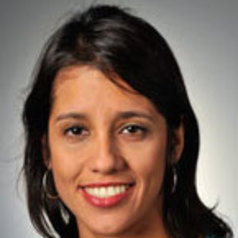
Marta González
Professor Gonzalez works in the area of urban computing, with a focus on the intersections of people with the built environment and their social networks. Her team designs urban mobility solutions and to enable the sustainable development of smart cities. Prof. González has introduced new tools into transportation research and is a leader in the emergent field of urban computing.
Less ![]()
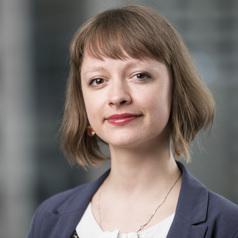
Marta Khomyn
Lecturer, Finance and Data Analytics, University of Adelaide
Marta Khomyn is a Lecturer at the Adelaide Business School, with the research focus on Finance and Data Analytics.
Marta does empirical research on passive investing, market efficiency, cryptocurrency markets, and more. Her research has been published in top academic journals such as Journal of Business and Finance. Marta also consults for the World Bank, focusing on digital technologies in developing countries. Prior to joining the University of Adelaide, Marta has been a Visiting Researcher at Chi-X Australia, a stock exchange. She also taught various Finance subjects at University of Technology Sydney and Stockholm School of Economics in Riga.
Less ![]()

Marta Miret
Profesora de Psicología Médica, Universidad Autónoma de Madrid
Marta es Licenciada en Psicología, Licenciada en Antropología Social y Cultural y Doctora en Psicología Clínica y de la Salud. Se formó en la Universidad Autónoma de Madrid, Boston University (Estados Unidos) y Pontificia Universidade Católica do Rio de Janeiro (Brasil). Actualmente es profesora del Departamento de Psiquiatría de la Universidad Autónoma de Madrid, Centro Colaborador de la Organización Mundial de la Salud, e investigadora adscrita al Centro de Investigación Biomédica en Red de Salud Mental (CIBERSAM). Es la secretaria académica del Departamento de Psiquiatría de la Universidad Autónoma de Madrid, vocal del subcomité de ética de la Facultad de Medicina, presidenta de la comisión de segundo curso del grado en Medicina y coordinadora académica del programa Erasmus.
Es investigadora principal de varios proyectos europeos y nacionales. Su campo de investigación es la epidemiología de los trastornos mentales, los trastornos afectivos, la conducta suicida y la relación entre el estado de salud, el bienestar subjetivo y la soledad. He publicado numerosos artículos científicos en revistas internacionales, participado en numeroso congresos nacionales e internacionales y dirigido seis tesis doctorales.
Less ![]()
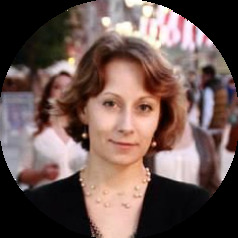
Marta Pachocka
Assistant Professor, SGH Warsaw School of Economics and Centre of Migration Research, University of Warsaw, Warsaw School of Economics
Dr. Marta Pachocka is the Head of the Migration Policies Research Unit at the Centre of Migration Research (CMR) of the University of Warsaw, Assistant Professor in the Department of Political Studies, and the Institute of International Studies of the Collegium of Socio-Economics of SGH Warsaw School of Economics. She received her Ph.D. in economics in 2013, but her academic profile is truly interdisciplinary, also including political science and migration studies. She has considerable experience as both a team leader and member in implementing cross-sector and multi-stakeholder projects co-funded by the National Science Centre, National Bank of Poland, Capital City of Warsaw, various ministries, EU Programmes (Horizon 2020, Lifelong Learning Programme, Erasmus+, Creative Europe), and others. She is on the Board of the PECSA and the Research Committee RC46 ‘Migration and Citizenship’ of the International Political Science Association (IPSA). She supports the European Commission Representation in Poland as an EU expert member of the Team Europe network. She is also a member of the International Steering Committee of the Metropolis Project, focused on international migration and migration policies. She was a Visiting Research Fellow at the Centre for European Studies of the Sciences.
Less ![]()
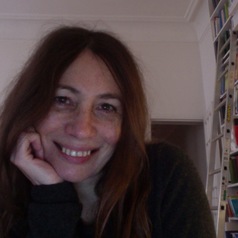
Marta Torre-Schaub
Directrice de recherche CNRS, juriste, spécialiste du changement climatique et du droit de l’environnement et la santé, Université Paris 1 Panthéon-Sorbonne
Marta Torre-Schaub est juriste, docteur en droit, spécialiste de droit de l’environnement et du changement climatique. Elle est directrice de recherche au CNRS. Elle exerce ses fonctions à l’ISJPS (Institut des sciences juridique et philosophiques de la Sorbonne). Elle co-dirige l’axe environnement de l'institut des sciences juridique et philosophique de la Sorbonne. Elle est expert nommée à l’Agence nationale de la sécurité sanitaire de l’alimentation, de l’environnement et du travail sur les produits phytosanitaires et les risques. Elle dirige depuis 2018 le GDR du CNRS CLIMALEX.
Elle est fondatrice du réseau de chercheurs « Droit et changement climatique » qu’elle dirige et anime. Elle a été boursière Fulbright à New York University en 2004 et Fellow Researcher dans le Global Program of Research de la même université en 2005.
Elle est auteur de nombreux articles et rapports ainsi que d’un certain nombre d’ouvrages dont : "La justice climatique, aspects juridiques" en cours de rédaction aux éditions de la Fondation Léopold Mayer et "Justice climatique : les recours en justice", aux éditions du CNRS 2019, ainsi que « Essai sur la construction juridique de la catégorie de marché », publié chez LGDJ en 2002, qui a obtenu le prix de thèse Dupin Aîné de la Chancellerie des Universités ; « Droit et climat », dossier scientifique, Cahiers de droit, sciences et technologies, CNRS, 2008 ; (co-dir) « La mondialisation des concepts en droit de l’environnement », Paris, LGDJ, 2009 ; (dir) « Le Bien-être et le droit », Publications de la Sorbonne 2016 ; « L’essentiel des grands arrêts de la jurisprudence en droit de l’environnement », Paris, Gualino, LGDJ, 2017 ; « Bilan et perspectives de l’Accord de Paris », Paris, IRJS, 2017.
Elle pilote actuellement plusieurs programmes de recherches : Les dynamiques du contentieux climatique, usages et mobilisations du droit, financé par la Mission droit et justice, et Climate Change Law, Green Pathways to Transition avec Columbia University à New York.
Less ![]()
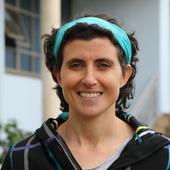
Marta Vicente-Crespo
Program Manager, CARTA, African Population and Health Research Center
Less ![]()
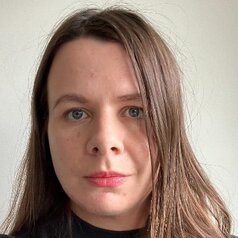
Marta Zboralska
Bowra Junior Research Fellow, University of Oxford
Marta Zboralska is a Leverhulme Early Career Fellow at the Ruskin School of Art and Bowra Junior Research Fellow at Wadham College.
Her current research project, Art After Witold Gombrowicz, maps responses to the Polish writer across the field of visual art. Demonstrating the author’s wide-ranging, transnational influence on artists – which has thus far escaped recognition – the project uses art-historical methodologies to study how Gombrowicz’s prose has been transformed into a variety of materials and mediums, traversing geographical contexts.
Marta completed her PhD at UCL in 2020, with a thesis titled The Art of Being Together: Inside the Studio of Henryk Stażewski and Edward Krasiński. The final chapter of her doctorate won the Association for Women in Slavic Studies 2020 Graduate Essay Prize. She was an Arts and Humanities Research Council Fellow at the Archives of American Art, Smithsonian Institution, in 2017, and Project Assistant on the Getty Foundation-funded initiative Confrontations: Sessions in East European Art History in 2019-20. In 2022, her Art Journal article 'Living Color: Henryk Stażewski’s Interior Models' was shortlisted for the Royal Historical Society's Alexander Prize. Her latest article, ‘Henryk Stażewski’s Art in America’, was published in the Spring 2023 issue of Archives of American Art Journal.
Before commencing her fellowship, Marta lectured at Oxford's Department of History of Art, UCL, and the University of Essex.
Less ![]()

Marta-Marika Urbanik
Assistant Professor, University of Alberta
I am an urban ethnographer, specializing in gangs, neighbourhood redevelopment, and inner-city policing in the Canadian context. My research interests include issues pertaining to harm reduction, neighbourhood violence, gangs, neighbourhood revitalization, and police-community relations (including police misconduct).
Less ![]()
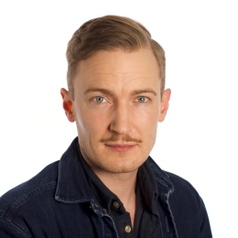
Mårten Hammarlund
PhD candidate of Psychology, Stockholm University
I am a licensed clinical psychologist, licensed child psychotherapist (Swedish National Board of Health and Welfare), and PhD candidate within a project that is lead by prof. Pehr Granqvist and postdoc Tommie Forslund. My research mainly regards contextual risk factors among mothers with intellectual disability or ADHD, in relation to various parenting capacities (e.g., parental mentalizing, interpretation of children's emotional signals), and child socioemotional development (attachment). I also teach attachment theory, mentalization theory, and developmental psychopathology on various courses on the clinical psychology/psychotherapy programs, as well as on the master program in psychology.
Beyond the field of attachment research, I also have a strong interest in developmental psychology more generally. My main interests concern the developmental roots of intersubjectivity and social learning, as well as developmentally informed clinical interventions for children and their families. I am a member of an international group of researchers and clinicians who work with Parental Embodied Mentalizing (a method for assessing automatic mentalizing in parents of infants), as well as of the International Relations Committe of APA Division 39 Society for Psychoanalysis and Psychoanalytic Psychotherapy. I am also engaged in questions relating to child welfare, and applications of developmental theory in a wider societal context.
Less ![]()
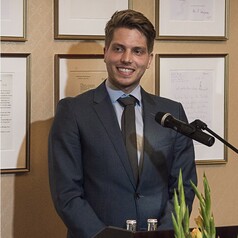
Marten Risius
Senior Lecturer in Business Information Systems, The University of Queensland
I am a Senior Lecturer at the University of Queensland School of Business. My work focuses on issues regarding online engagement and the digital society like online extremism, disinformation, doxing, privacy, and blockchain technologies. I am an ARC DECRA fellow as well as the recipient of the Association of Information Systems and VHB Early Career Awards.
Less ![]()
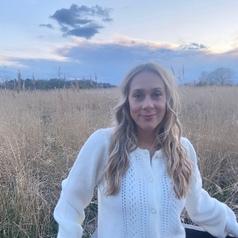
Martha Geiger
PhD Candidate in Sociology, University of Warwick
I am currently in the final year of my PhD in Sociology. My research broadly explores equine (horses, donkeys and mules) labour relations and protection in sub-Saharan Africa.
Martha has gained valuable research, project management, and leadership experience in Canada, UK, Ethiopia, South Africa and Botswana. She previously worked as a Senior Research Associate at the University of Bristol where she led a study in Ethiopia investigating the socio-economic dimensions of the lives of working animals.
Less ![]()
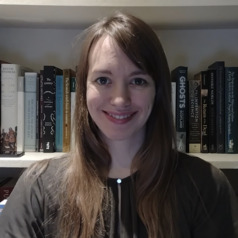
Martha McGill
Historian of Supernatural Beliefs, University of Warwick
Dr Martha McGill is a historian of supernatural beliefs at the University of Warwick. In collaboration with Dr Imogen Knox, she has developed an online exhibition about early modern divination, Stars, Sieves and Stories. It features interactive fortune-telling methods and a ‘choose your own adventure’ story. https://starsandsieves.com
______
My research interests lie in early modern British intellectual, social and cultural history. My work has explored how changing conceptions of the supernatural reflect on religious culture, developments in natural philosophy, relations between different social groups, and national identity.
I completed a PhD in History at the University of Edinburgh in 2016. I subsequently held postdoctoral fellowships at the Institute for Advanced Studies in the Humanities, Edinburgh, and the Warburg Institue, London. In 2018 I started at the University of Warwick as a British Academy Postdoctoral Fellow, working on a project entitled 'Bodies, Selves and the Supernatural in Early Modern Britain'. You can read more about this project in this blog postLink opens in a new window.
I'm passionate about bringing history to wider audiences, and have led on a range of engagement projects. Most recently I worked with students to develop and market a pair of educational card gamesLink opens in a new window about the early modern witch hunts, with proceeds going to charity, and developed an exhibitionLink opens in a new window about early modern divination. Please see above for more on my publications, online interviews, and teaching. For further information and teaching resources, see my personal websiteLink opens in a new window.
Less ![]()
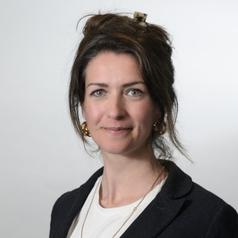
Martha Newson1
Associate Professor in Psychology, University of Greenwich
Martha Newson joined Greenwich in 2023 as Associate Professor in Psychology. Though working with modern human populations, Martha’s research is strongly informed by evolutionary theory. Her highly inter-disciplinary research draws from anthropology, psychology, evolutionary theory and criminology, so she has connections across academic disciplines.
Her research and consultancy practice is guided by the themes of social cohesion, ritual, and belonging. Her primary focus is on the rituals underlying social cohesion and the ensuing cooperation and conflict emerging from tightly bonded groups.
Dr Newson has worked with a range of challenging populations, from fundamentalist Indonesian Muslims to London’s ravers. She has particular experience working with football fans, including surveys and interviews with hardcore Brazilian, Indonesian and Australian fans (ultras) and collecting hormonal samples from fans at live World Cup events.
She gained a BSc in Human Sciences from the University of Sussex then taught English in Vietnam and Spain, before completing her postgraduate studies at the University of Oxford in Cognitive and Evolutionary Anthropology. She remains a Research Affiliate at the University of Oxford (Centre for the Study of Social Cohesion).
Dr Newson provides consultancy and commentary on issues related to group psychology, belonging, conflict, and cooperation. This concerns human behaviour and evolutionary psychology in general terms, and with regard to football fandom specifically. Previous consultancy clients include Guinness, the Premier League, Manchester City and Hyundai among others.
Martha has contributed to Discovery’s Why We Hate, produced by Steven Spielberg, as well as numerous BBC and Sky TV features in the UK, such as BBC News and Sky News, alongside a number of radio shows including Radio 4’s World at One and PM programmes. Her research has also featured in The Guardian, The Telegraph, The Independent, International Business Times, The Daily Mail, The Sun, Haaratz, Der Spiegel and many others.
Less ![]()
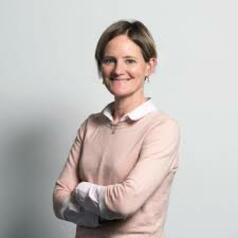
Martha O'Hagan Luff
Associate Professor, Trinity Business School, Trinity College Dublin
Martha O'Hagan Luff is an Assistant Professor of Finance in Trinity College Dublin, and the Director of the MSc in Law and Finance. She holds a BA in Economics, an MSc in Finance and a PhD in International Finance from Trinity College. Her research interests are in the areas of Home Bias in Equity Investments, Entrepreneurship and Sustainable Finance.
She has published articles in many journals including the International Business Review, International Journal of Finance and Economics and Small Business Economics. Prior to completing her PhD she worked in Investment Banking in London and Dublin, for Bank of America, Credit Suisse First Boston and Bank of Ireland Global Markets. Her area of specialisation was derivatives and financial engineering.
Less ![]()
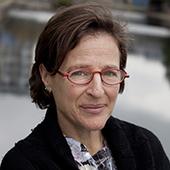
Martha Prevezer
Professor of Governance and Economic History, Queen Mary University of London
Less ![]()
- Market Data























